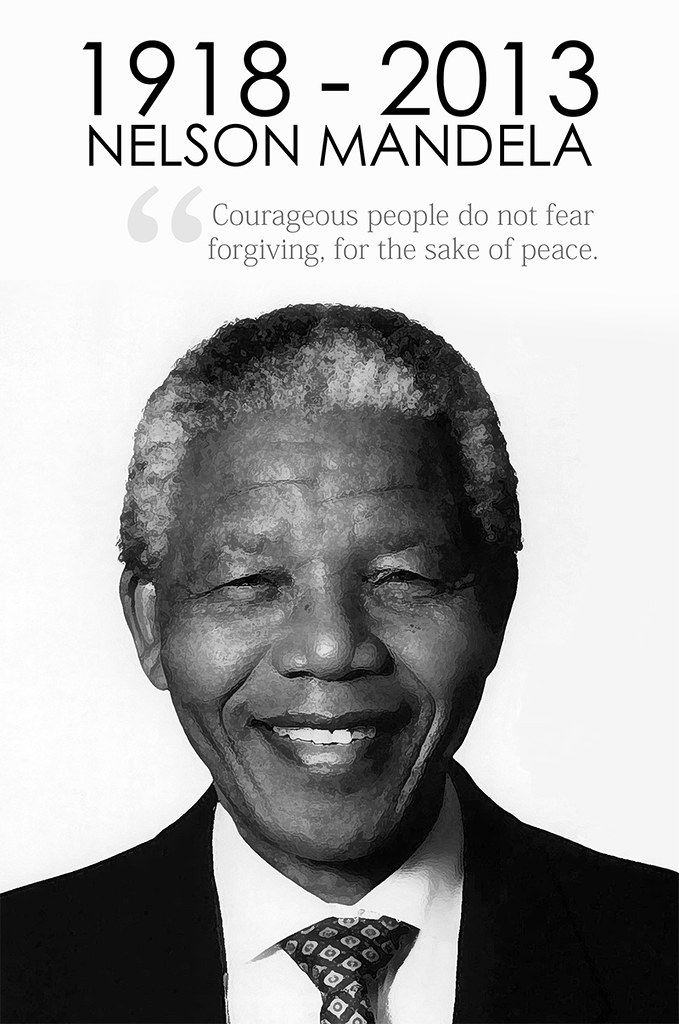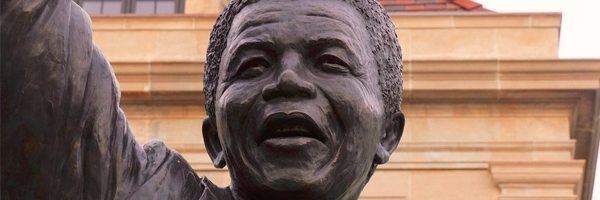Nelson Mandela: Reconciling with Truth
There are few people whose death can bring the world to a standstill. Even fewer can claim to be so universally inspiring, uniting figures like Barack Obama and Raul Castro in sadness and celebration of their memory. Nelson Mandela was more than many of the roles attributed to him. Politician, activist, freedom fighter, terrorist…none can quite summarise the uniqueness of the man. Already we have seen different groups attempt to sculpt the legend surrounding this icon of freedom to suit their own purposes. Indeed, we need only look at the various attendees at Tuesday’s Memorial to see evidence of political bandwagoning going on amongst world leaders, attempting to snatch popularity and legitimacy from the jaws of a greater man’s death.
It is easy to repeat the praise that is currently being heaped on Mandela, reinforcing a viewpoint that has been built up over the years since the end of Apartheid. To see anyone only as you wish to see them is a dangerous practise. Chavez and Thatcher both had their eulogies and polemics, but Mandela has so far been removed from any serious criticism in the mainstream media. Like Kennedy or Gandhi, the legend seems to have superseded the man. What often seems to be ignored–which much of the memorialising and press coverage is guilty of–is that the anti-Apartheid struggle was more than just Nelson Mandela.
Like Kennedy or Gandhi, the legend seems to have superseded the man.
One could hazard to presume that the average teenager has a limited knowledge of Oliver Tambo, Steve Biko, Walter Sisulu, Chris Hani, Ruth First, Joe Slovo or any of the plethora of leading activists who fought just as hard, and in many cases gave their lives in the struggle, against apartheid. The focus here also excludes what T.E. Lawrence would call ‘the unnamed rank and file’, the masses of people around the world who turned out to demonstrations, who petitioned their governments and forced a change that one man, locked away and isolated in a prison cell, could not possibly achieve.
Mandela’s role in Umkhonto We Sizwe–the armed (and branded by more than one Western politician as terrorist) wing of the African National Congress–is often overlooked by those reflecting on his role in bringing down Apartheid. This aspect of his life should not be downplayed; Mandela’s arrest in 1962 (that would lead to the Rivonia Trial and his imprisonment on Robbin Island) was on his return from guerrilla warfare training in Ethiopia. He was still wearing his combat fatigues at the time. With no disrespect to his legacy, Mandela made an acceptable figure for Western leaders to support and later almost deify. His reconciliatory approach after his release from captivity would not prove to aggressively challenge the divisions of wealth and opportunity beyond the domestic borders of South Africa. He was not a Communist (as many of the staunchest anti-Apartheid campaigners were) nor was he remonstrating against colonialism in the fashion of Lumumba or, arguably, Mugabe.
‘Cowards die many times before their deaths/The valiant never taste of death but once.’
Yet, given this acknowledgement of his failings, Mandela still remains a hero in my eyes. Warm, friendly, with a quick and ironic sense of humour and yet a fierce conviction for his ideals, Mandela encapsulates the sort of political figure we love–he is one with King and Gandhi, a great Liberator of the 20th Century. But more than this, Mandela proved a strength far greater than can be shown in the fight: he showed humanity in victory. 27 years lost labouring on a limestone quarry, being stopped from attending the funerals of his mother and his firstborn son, the threats to his life and assassination of his friends, and over a century of racial oppression did not lead Mandela when elected President, to seek retribution.
Truth and Reconciliation are his legacy, and he pursued these with a bravery that only the truly great can achieve. ‘Cowards die many times before their deaths/The valiant never taste of death but once.’ Mandela put his name beside these words from Shakespeare, and the militaristic tone has struck many as incongruous with the nature of the man. That is only because the valiance of Madiba was not found in violence. His courage was in peace.

[divider]
Header Photo: flickr/taedc
Embedded Photo: flickr/ashishphotos

Comments